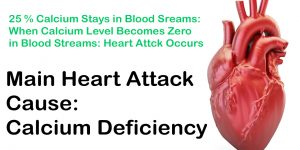-

-
-

-

-

-

-

-
-
-
I have not tasted it still but I will try to taste it soon making at home with the help of my cousin. Ingredients:
1 packet dumpling wrappers, for soup
1.5 liter chicken stock, homemade or store-bought
2 to 3 stalks baby bok choy
spring onion, diced, for garnish
sesame oil, to taste
salt, for cleansing the prawn meat
corn flour, for cleansing the prawn meat
Fillings:
250 gm pork mince
160 gm prawn meat
3 shiitake mushrooms, soaked and shredded
30 gm bamboo shoots, frozen or canned, blanched in hot water then shredded
20 gm wood ears, blanched in hot water then shredded
Marinade:
2 tsp light soy sauce
½ tsp salt
½ tsp sugar
½ tsp oyster sauce
1 tsp cornflour / corn starch
½ tsp chicken powder / chicken bouillon
1 egg white
white pepper, to taste
sesame oil, to tasteMethod:
Mix the prawn meat with a little of salt and corn flour. Leave them for about 15 to 20 minutes. Rinse and pat dry with kitchen papers. Cut each into 3 to 4 pieces.
Mix pork mince with marinade. Stir in the prawn, mushrooms, bamboo shoots, wood ears. Cover and chill in fridge for about 20 minutes, or until you’re ready to wrap dumplings.
Put a heaped spoon of fillings in the middle of a wrapper. Damp the wrapper around the fillings and seal the filling tightly, leaving the wrapper edges loosely. No need to make it perfect. Just make sure the fillings won’t leak out while boiling. Repeat this step to finish wrapping with the remaining fillings.
Bring the chicken stock to a boil over high heat in a pot.
In the meantime, carefully put dumplings into another large pot of boiling water over high heat. Stir the water with chopsticks in order to avoid the dumplings stick to the bottom. When the dumplings float to the water surface. Immediately transfer them into the chicken stock. Add bok choy and cook for a while. Season with salt. Sprinkle spring onion and sesame oil. Serve immediately.
-
-
-
vegetables are the best source of vitamins but vegetables do not produce minerals in human body we have to take minerals from out side source as from all fruits and dry fruit. Our body is composed of vitamins and minerals brick by brick made of cells.
I think that Most vegetables are naturally low in fat and calories. …
Vegetables are important sources of many nutrients, including potassium, dietary fiber, folate (folic acid), vitamin A, and vitamin C.
Diets rich in potassium may help to maintain healthy blood pressure.
More items…People who eat fruit and vegetables as part of their daily diet have a reduced risk of many chronic diseases. USDA’s MyPlate encourages making half your plate fruits and vegetables.
Vegetables are important part of healthy eating and provide a source of many nutrients, including potassium, fiber, folate (folic acid) and vitamins A, E and C. Options like broccoli, spinach, tomatoes and garlic provide additional benefits, making them a superfood!
Potassium may help to maintain healthy blood pressure. Dietary fiber from vegetables helps reduce blood cholesterol levels and may lower risk of heart disease.
Folate (folic acid) helps the body form healthy red blood cells. Women of childbearing age who may become pregnant and those in the first trimester of pregnancy need adequate folate to reduce the risk of neural tube defects and spina bifida during fetal development.
The nutrients in vegetables are vital for health and maintenance of your body.
Vegetable’s Health benefits mat be these as
Eating a diet rich in vegetables may reduce risk for stroke, cancer, heart diseases and type-2 diabetes.
One to four cups of vegetables are recommended each day, depending on how many calories you need. To find out how many vegetables you need to eat, use the Healthy Eating Planner.
-
-
-

-
If you want to live too long, you have to avoid eating the foods that are declared here. Wat we need to be disease free is healthy foods, plus we need lots of discipline.This is what makes us stupid for we do not listen to our body. Our mouth does not refuse but the entire system may suffer much.
-
Yes food effect human heart if we take wrong and bad food because it makes heart mineral upsets anon reaching in the arteries and veins. Therefore every human being eat food fresh and full of minerals and vitamins.
Coronary heart disease is characterised by a narrowing of the arteries (atherosclerosis). Fatty deposits, or plaques, cling to the artery walls and can clog the arteries, making it more likely that a blood clot will form.
A heart attack occurs when a blood clot blocks one of the arteries of the heart. This prevents the flow of blood, cuts off the oxygen supply to the heart and damages or kills the heart cells.
These foods may prevent heart diseases as There is no ‘magic’ food to decrease the risk of developing heart disease. You need to eat a healthy diet and have plenty of exercise. High-salt diets increase blood pressure and the risk of heart attack and stroke.
Most of us consume more than ten times the amount of salt we need to meet our sodium requirements (salt contains sodium and chloride). However, there is evidence that plant foods – especially wholegrain cereals, legumes, nuts, fruits and vegetables – may decrease the risk of heart disease.
The foods that best protect against heart disease include:
oily fish – such as mackerel, sardines, tuna and salmon which contain omega-3 fatty acids. This type of fat has been shown to decrease triglycerides and increase HDL-cholesterol levels, improves blood vessel elasticity and thins the blood, making it less likely to clot and block blood flowsome vegetables oils – such as corn, soy and safflower, which contain omega-6 fatty acids, and those containing omega-3 fatty acids such as canola and olive oil. All of these can help to lower LDL cholesterol when used instead of saturated fats such as butter
fruit and vegetables – antioxidants in fruit and vegetables offer protection against heart disease. Fruit and vegetables are also important sources of folate, which helps lower the blood levels of the amino acid homocysteine, which appears to be linked to an increased risk of heart disease
fibre – wholegrain cereals and fruit and vegetables
-
Diet and cardiovascular disease
The role of diet is crucial in the development and prevention of cardiovascular disease. Diet is one of the key things you can change that will impact all other cardiovascular risk factors.Comparisons between a diet low in saturated fats, with plenty of fresh fruit and vegetables, and the typical diet of someone living in the developed world show that in the former there is a 73% reduction in the risk of new major cardiac events.
Fat
Research makes it clear that abnormal blood lipid (fat) levels have a strong correlation with the risk of coronary artery disease, heart attack and coronary death. In turn, abnormal blood lipids are related to what you eat. A diet high in saturated fats (e.g. cheese) and trans fats (often used in cakes, cookies and fast food) leads to high levels of cholesterol.Saturated fats are found in animal products. Trans fats are oils that have been hydrogenated to turn them into semi-hard fats. Hydrogenated fat is found in processed food like shop-bought cakes, biscuits, stock cubes and a range of other products you buy every day. Saturated and trans fats raise cholesterol levels in the blood, which in turn can lead to atherosclerosis.
Unsaturated fats, polyunsaturated and monounsaturated are beneficial for heart health. They are present in fish, nuts, seeds and vegetables.
The essential fatty acids omega-3 and omega-6 are found in oily fish and in nuts and seeds. Our bodies cannot make these acids so we have to eat them to gain their benefits, which include improving cholesterol levels in the body.
But it is important to note that if your total fat intake is greater than 37% of your total calories, then even if that fat is unsaturated you increase your risk of cardiovascular disease. Saturated fat intake should not exceed 10% of total energy and for high-risk groups, like people with diabetes, total fat intake should be 7% or less of total energy.
Sodium
High blood pressure (hypertension) is a major risk factor for cardiovascular disease. If you have a diet high in sodium you risk hypertension.It has been estimated that a universal reduction in dietary intake of sodium by about 1g of sodium a day, about 3g of salt, would lead to a 50% reduction in the number of people needing treatment for hypertension. The same decrease would lead to a 22% drop in the number of deaths resulting from strokes and a 16% fall in the number of deaths from coronary heart disease.
Fruits and vegetables
Eating a diet high in fresh fruits and vegetables protects your heart. Low fruit and vegetable intake accounts for about 20% of cardiovascular disease worldwide. Fruit and vegetables contain components that protect against heart disease and stroke.Wholegrain cereals
Whole grains are unrefined and do not have the bran or germ removed. They contain folic acid, B vitamins and fiber, all of which are important protectors against heart disease. Processed grains like that used to make white bread and pasta do not have the same benefits as wholegrain cereals.Fish
In countries where fish consumption is high there is a reduced risk of death from all causes as well as cardiovascular mortality.Nuts
Eating nuts regularly is associated with decreased risk of coronary heart disease.Soy
There is evidence that soy has a beneficial effect on blood lipid levels. Eating 47g of soy protein a day led to a 9% drop in total cholesterol and a 13% reduction in LDL cholesterol in one study of people without any heart disease.Alcohol
If you have the occasional drink you may protect your heart, but only if you drink in moderation.
-
-

-

-

-

-
-

-

-

- Load More










They just want to know that your are there for them
S hurting child will sometimes be very quiet, and not really say anything just in case he is told that he is being too petty about some issues. When a child is hurt that will always throw tantrums others will get aimlessly just like you have mentioned above. And that can be very annoying trying to stop that child from crying can be a huge mess. But the best way is to show them that you are attentive to them. It’s not really about what you will give them but just your time would change everything. Time is very essential most people take it for granted they don’t spend much time with their children’s making their kids feel vulnerable and neglected and that’s why they will always get and throw tantrums.
In my case when a child is hurt I check what the issue is and then treat the child accordingly. I do not like to treat the child with kid gloves always. Sometimes it is needed to be done but many other times I explain them why they are crying and when they will stop crying and how they can help themselves in the situation.
I see many grown children also crying nowadays. For very minor issues. I feel they have been turned into delicate darling’s by there parents by showering too much of love and affection and also by being overprotective. This sort of a thing will never help the child and will turn out to be a problem when they grow as adults. An interesting article giving information on how to handle different children with varied mentalities. Best wishes.